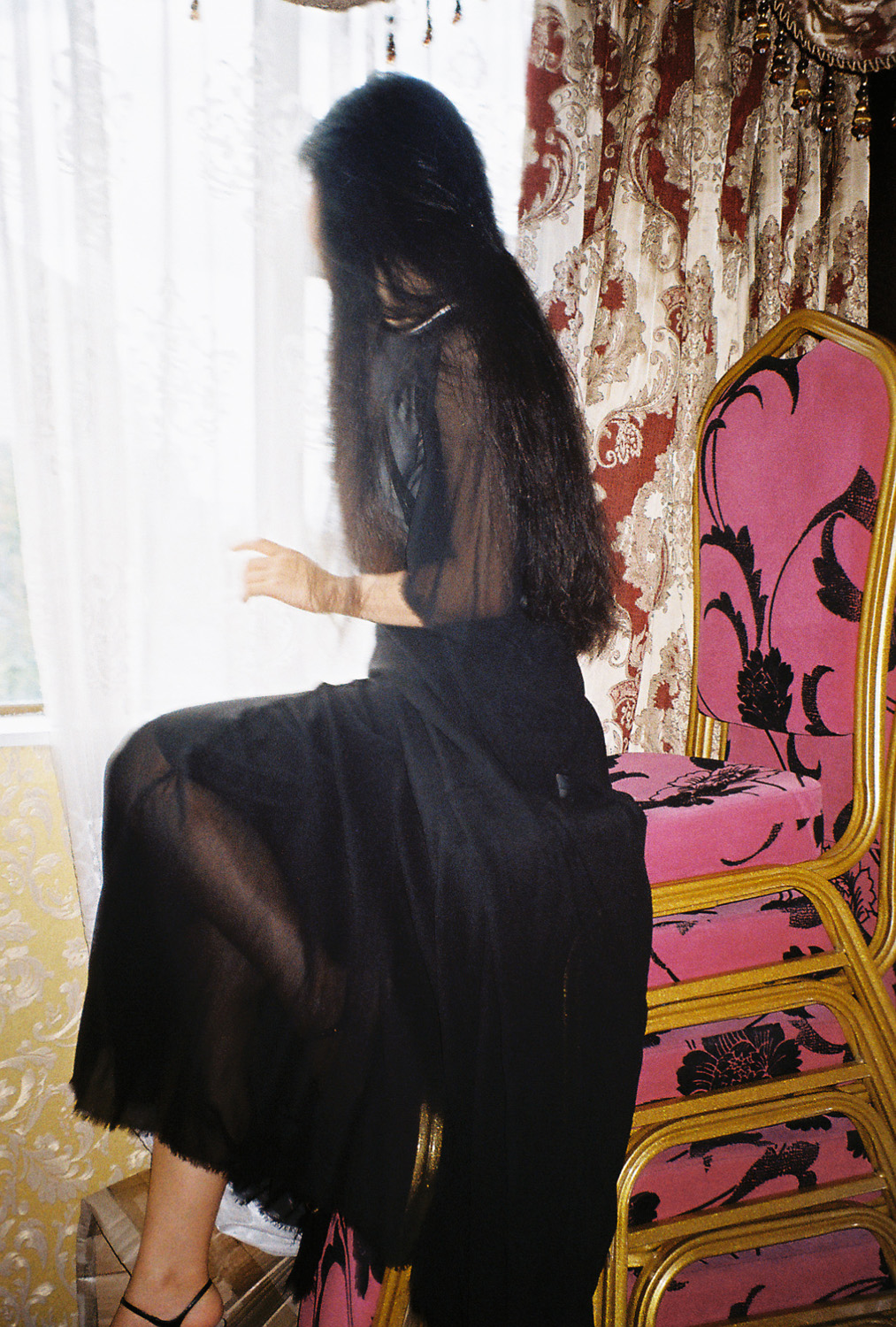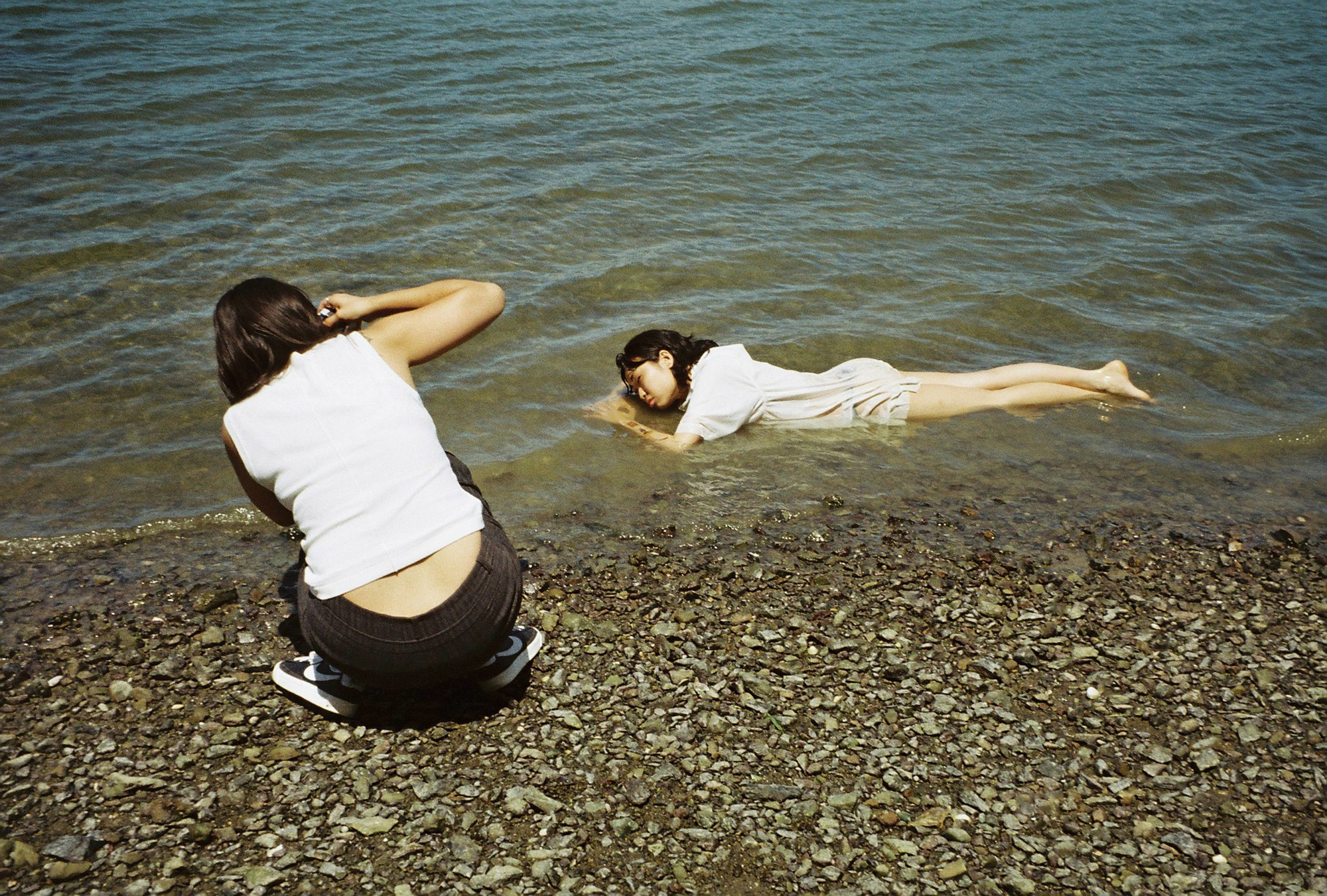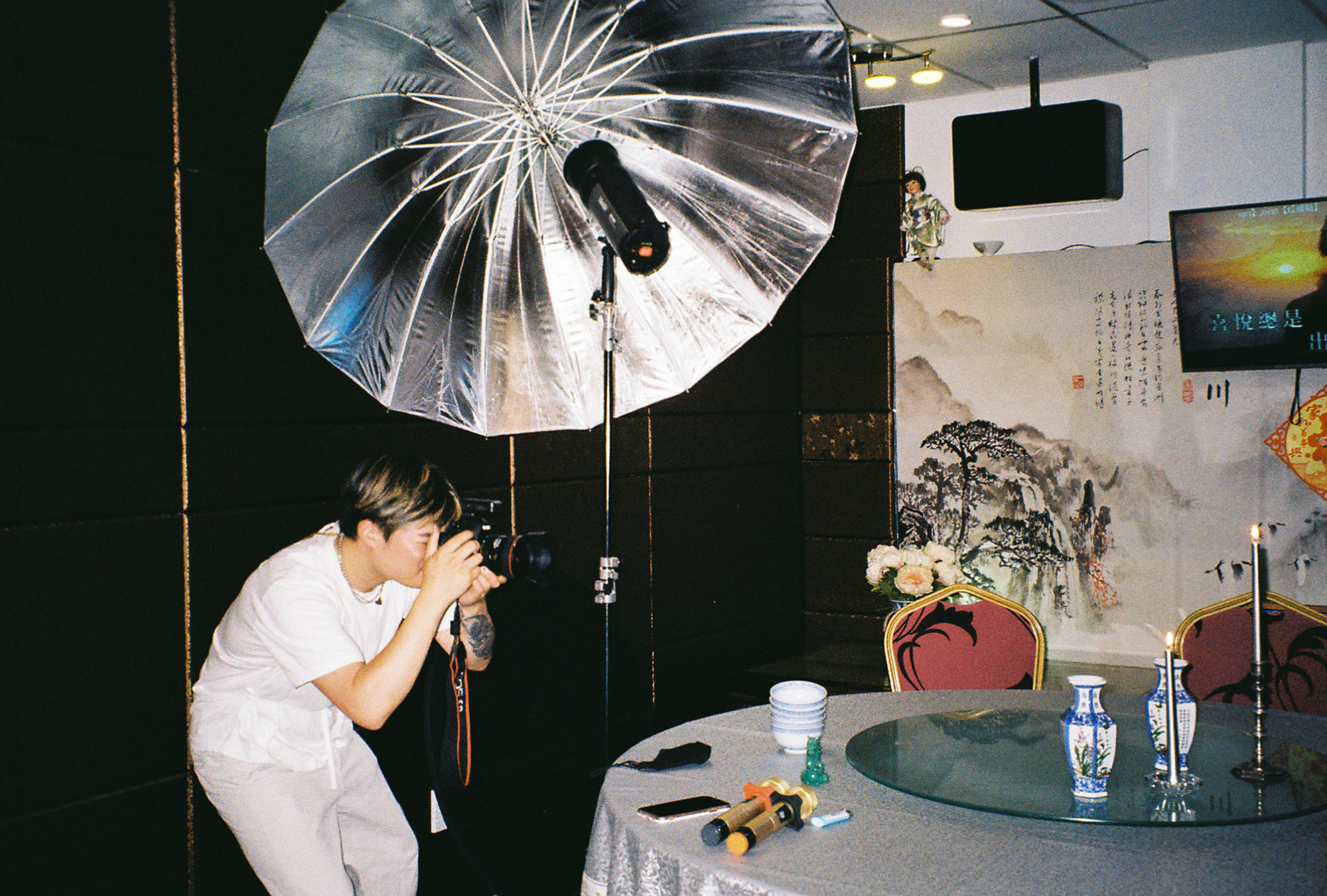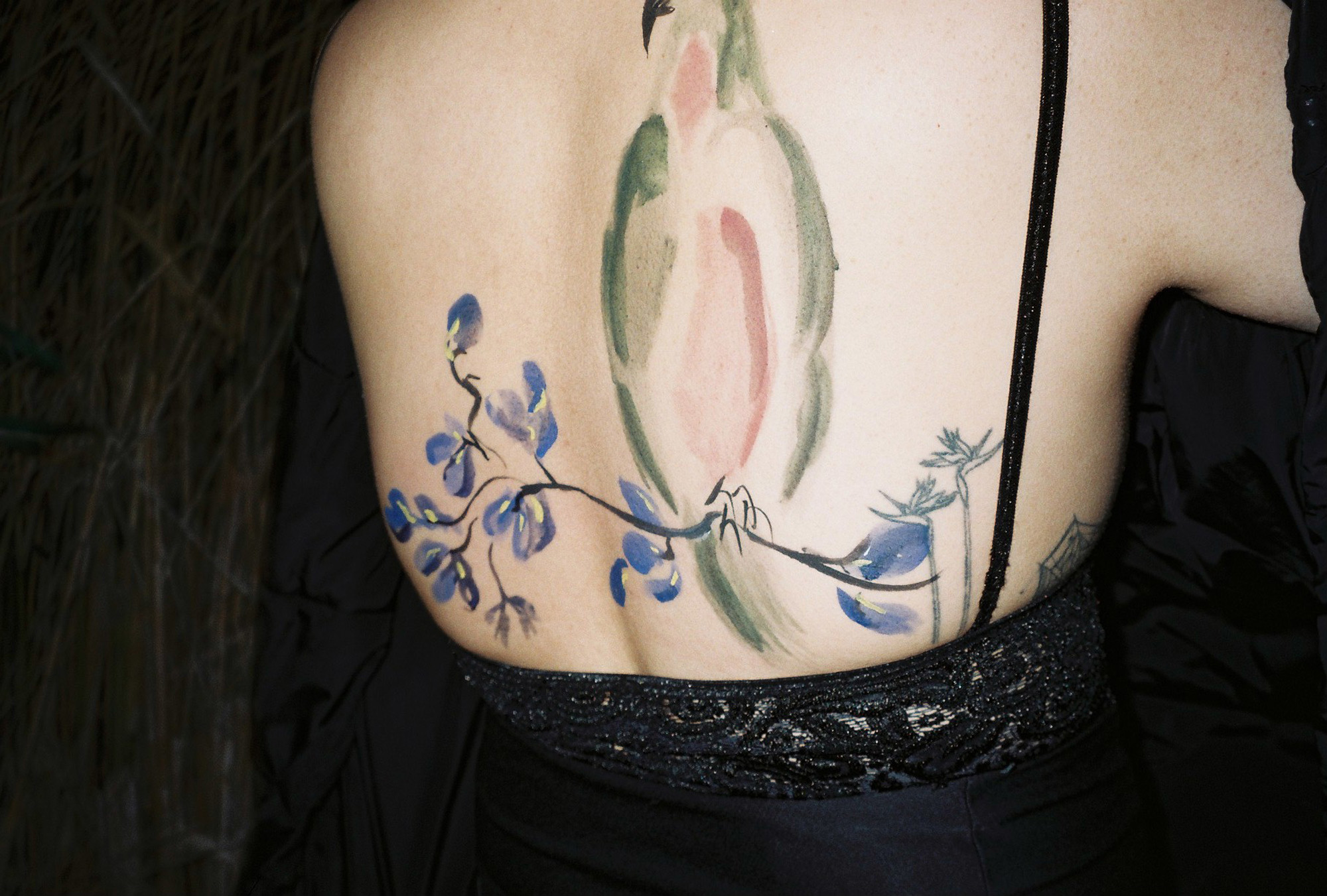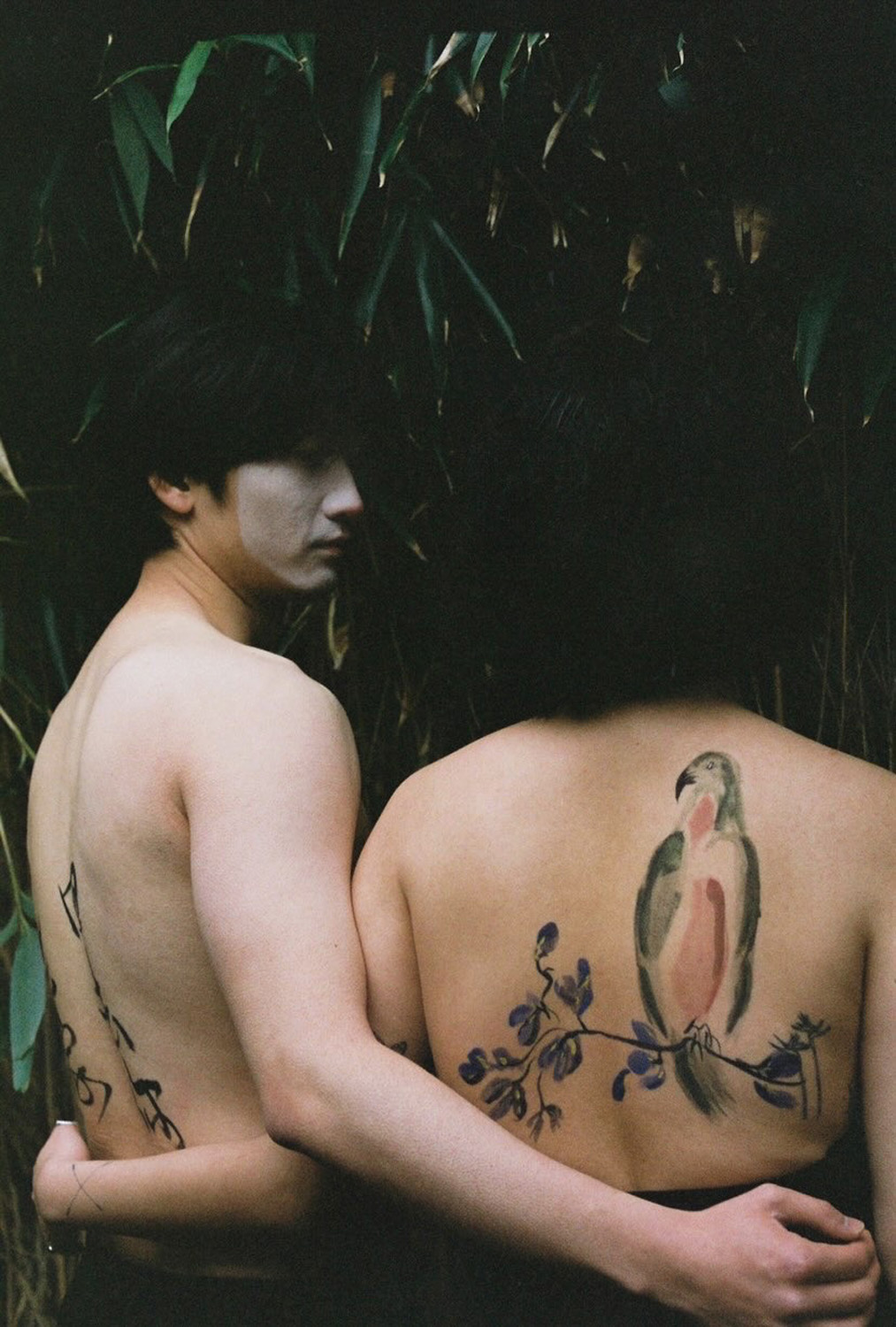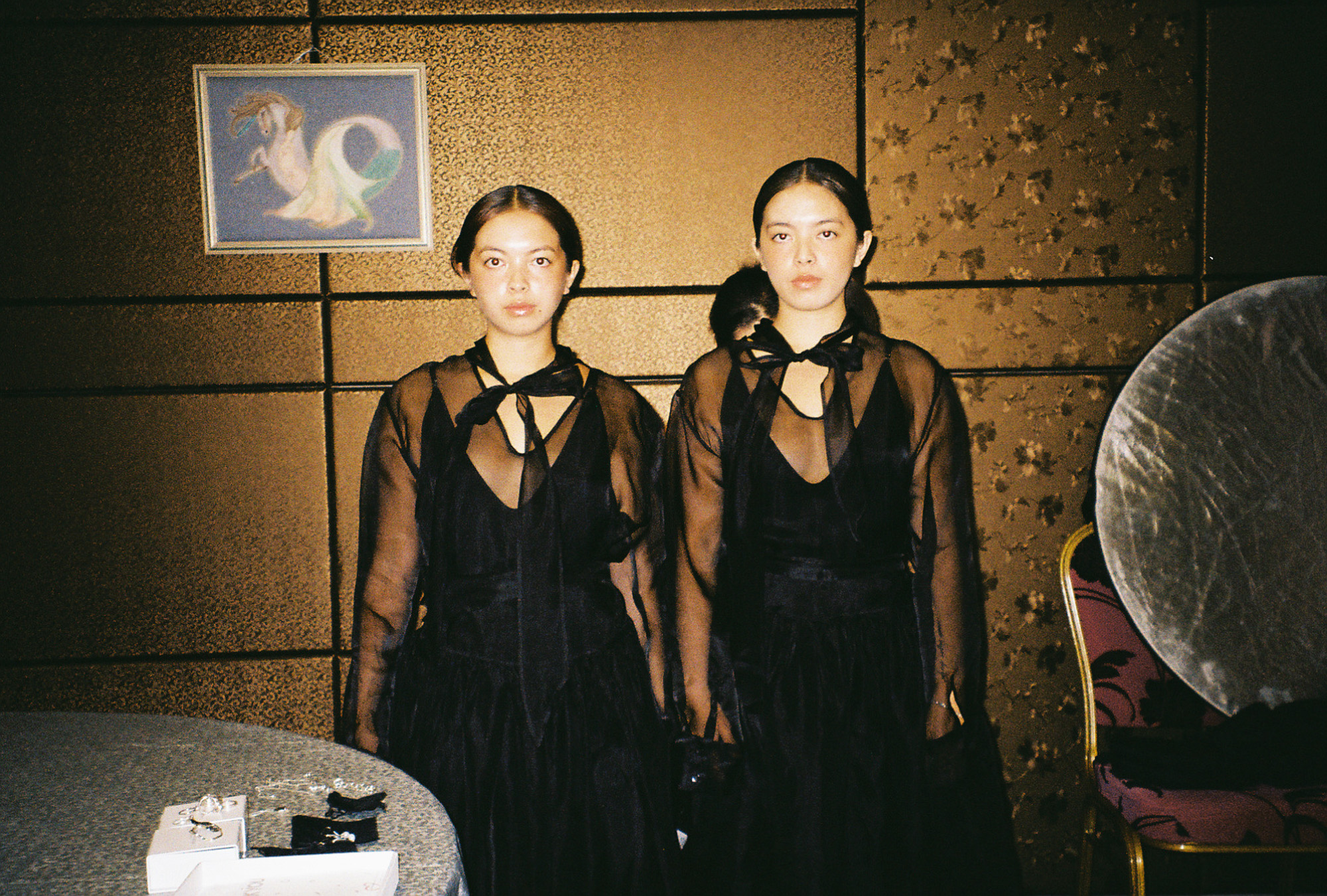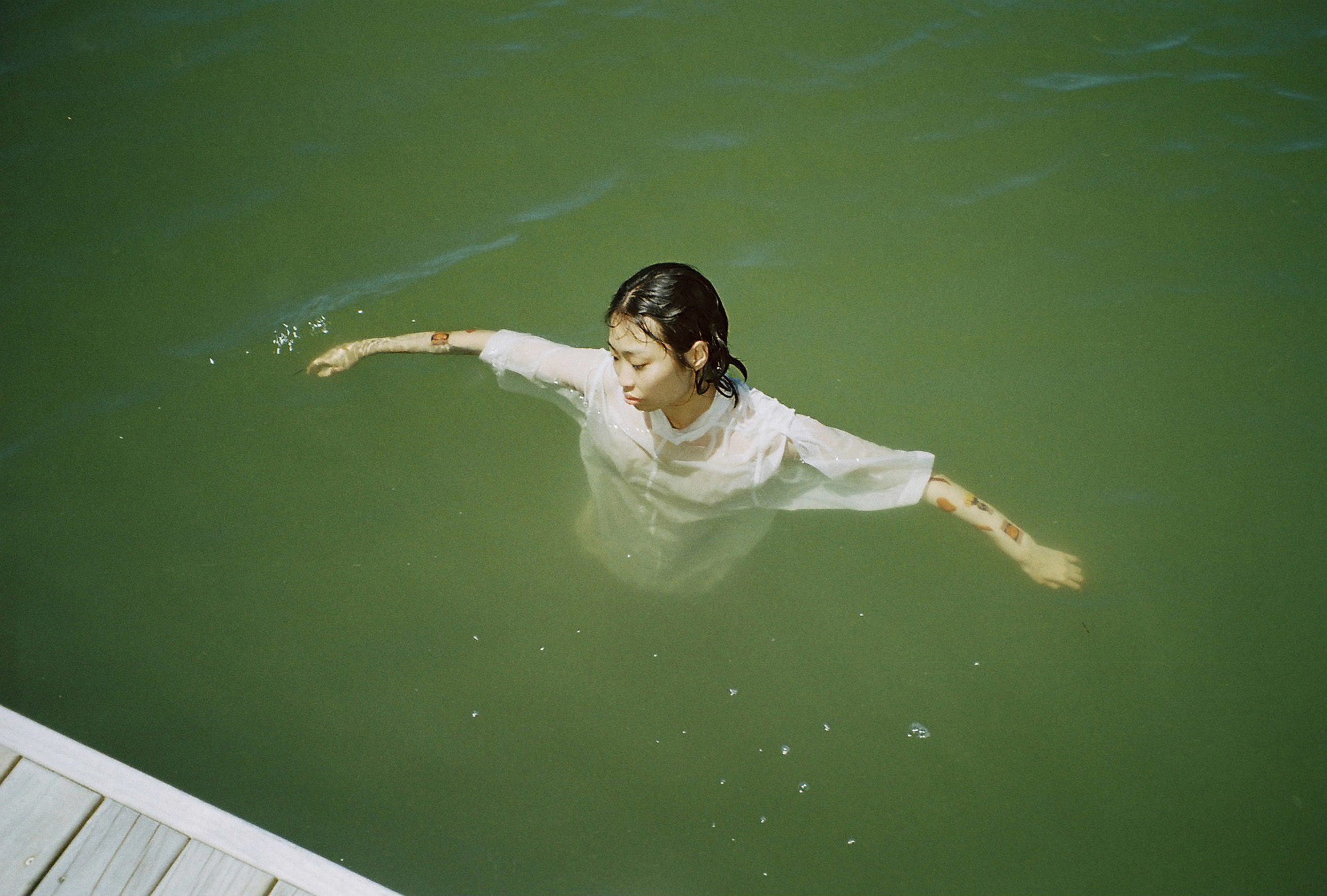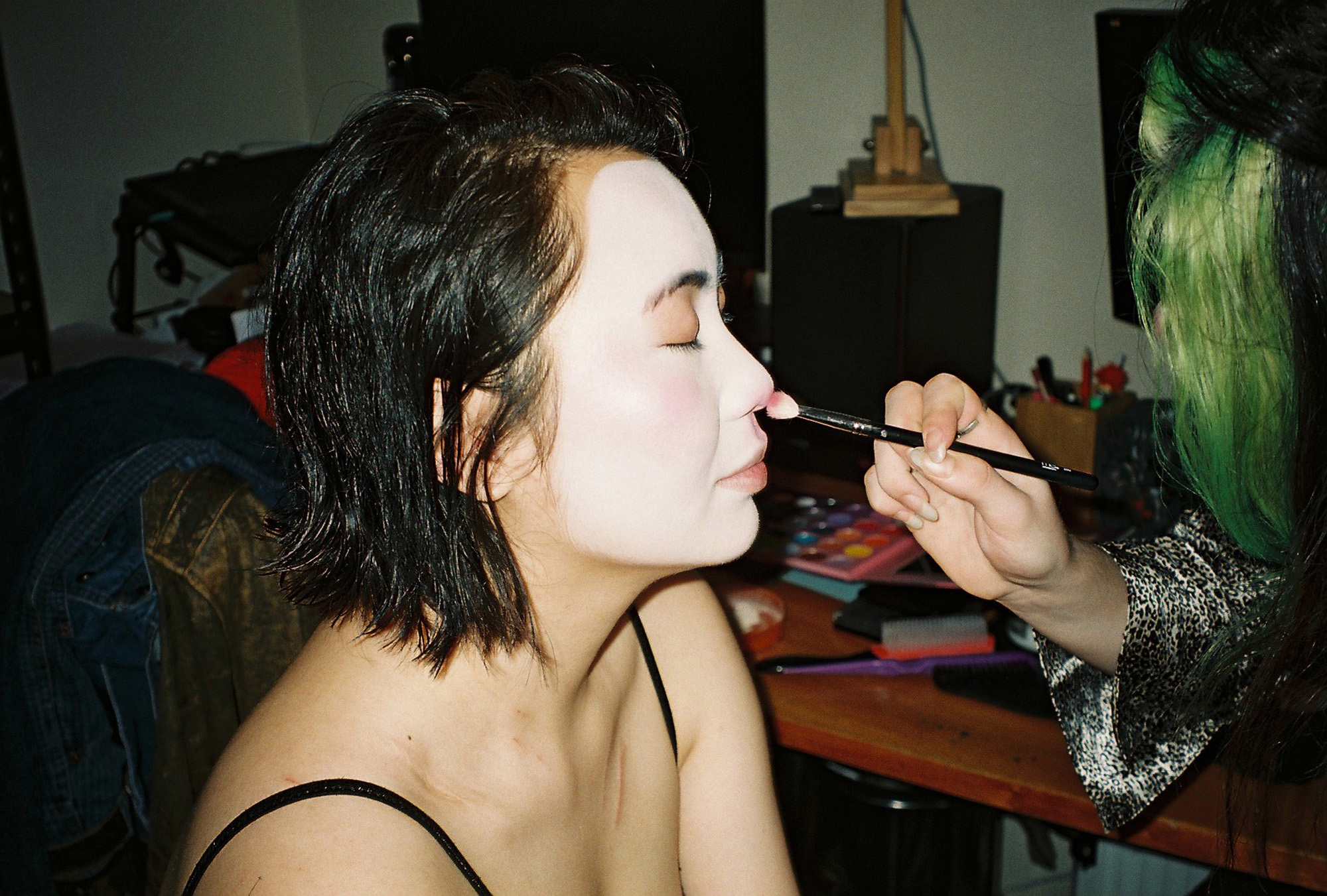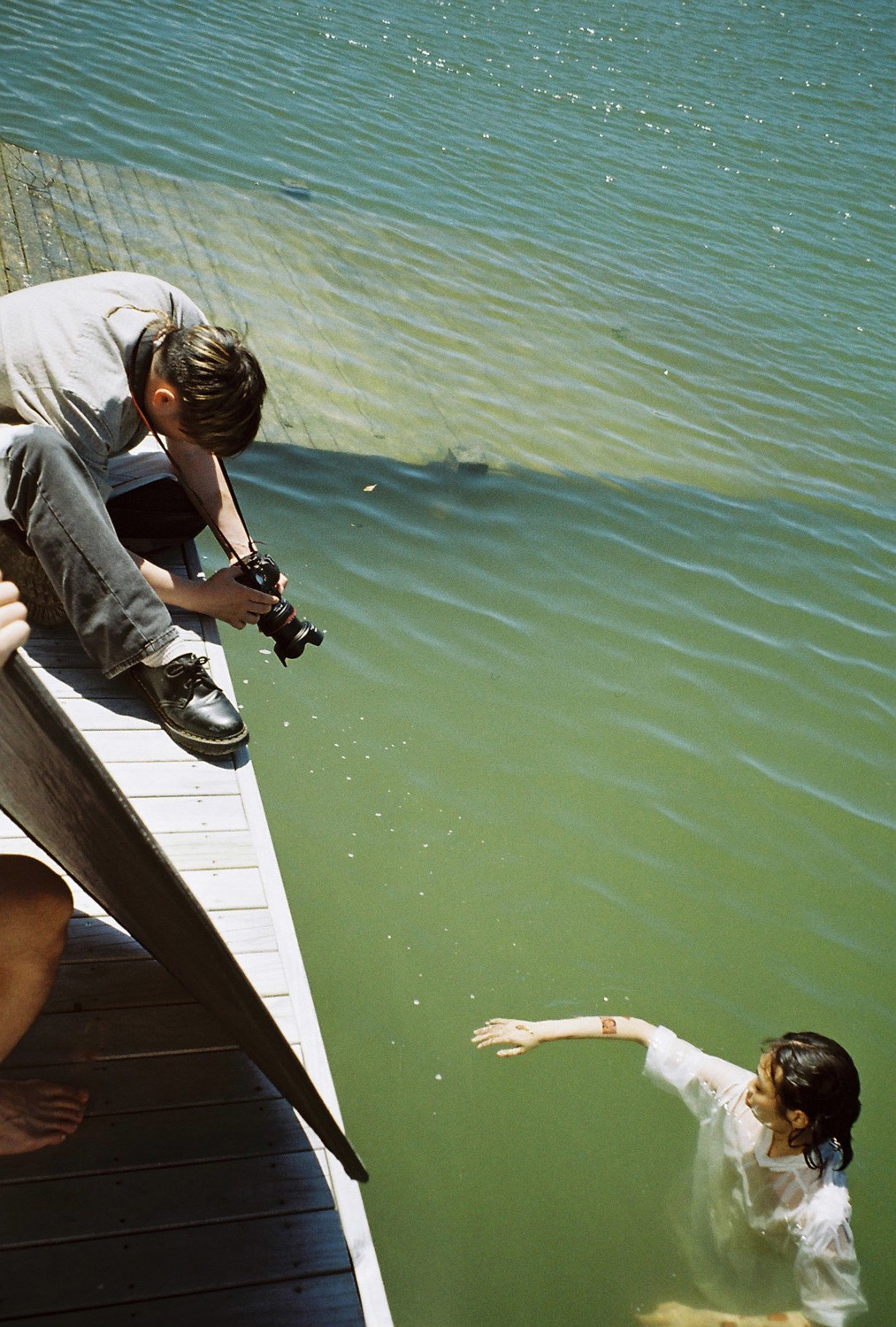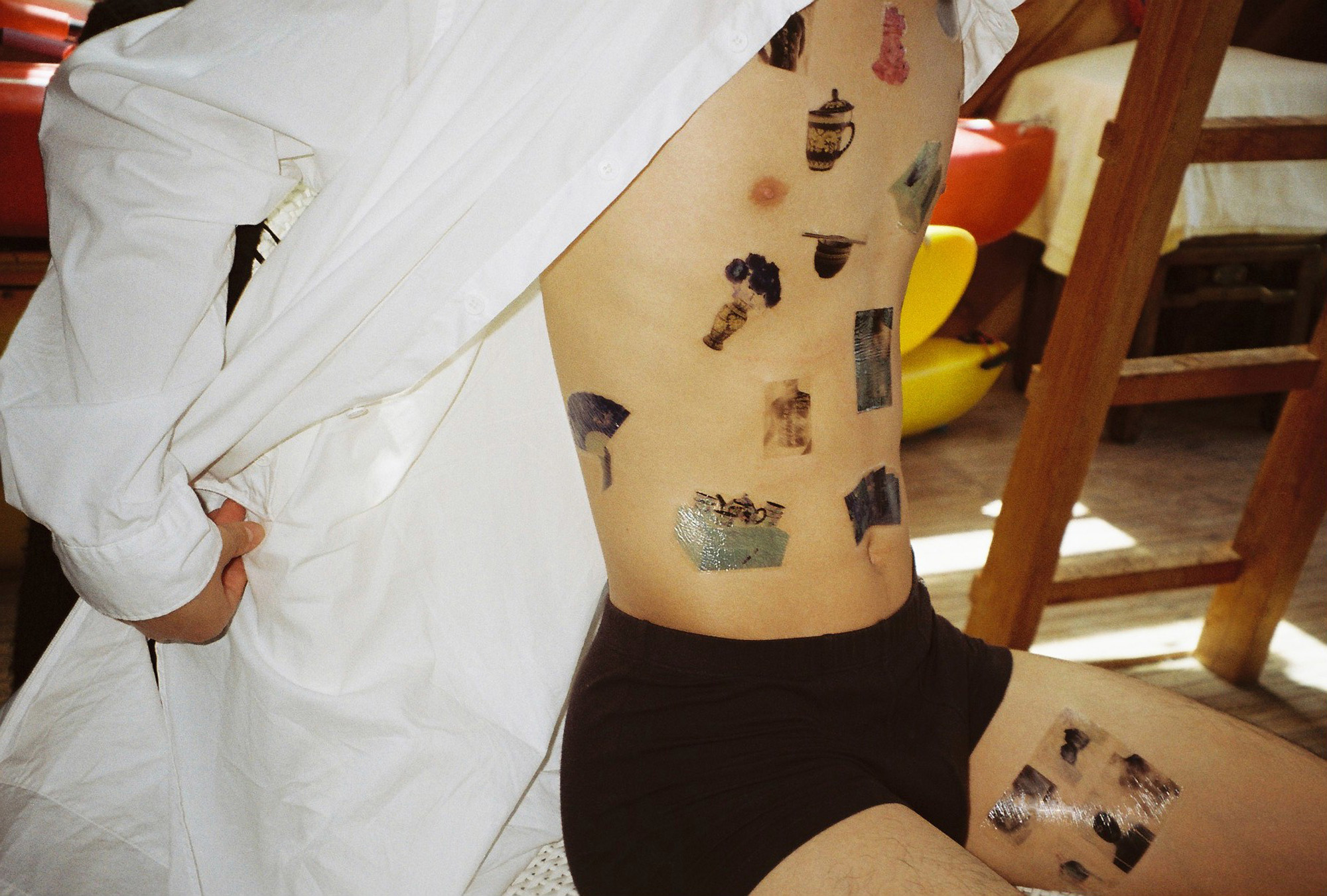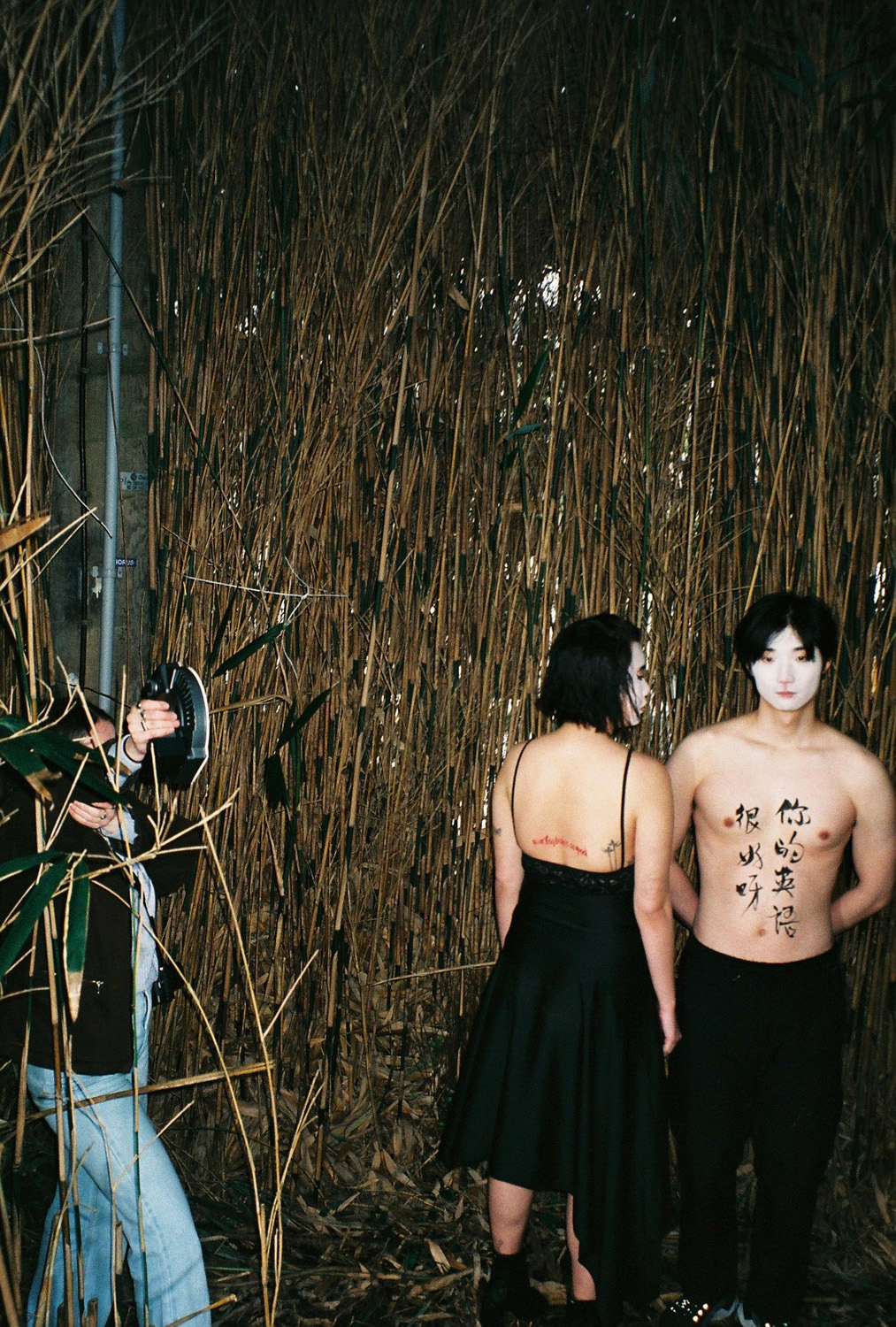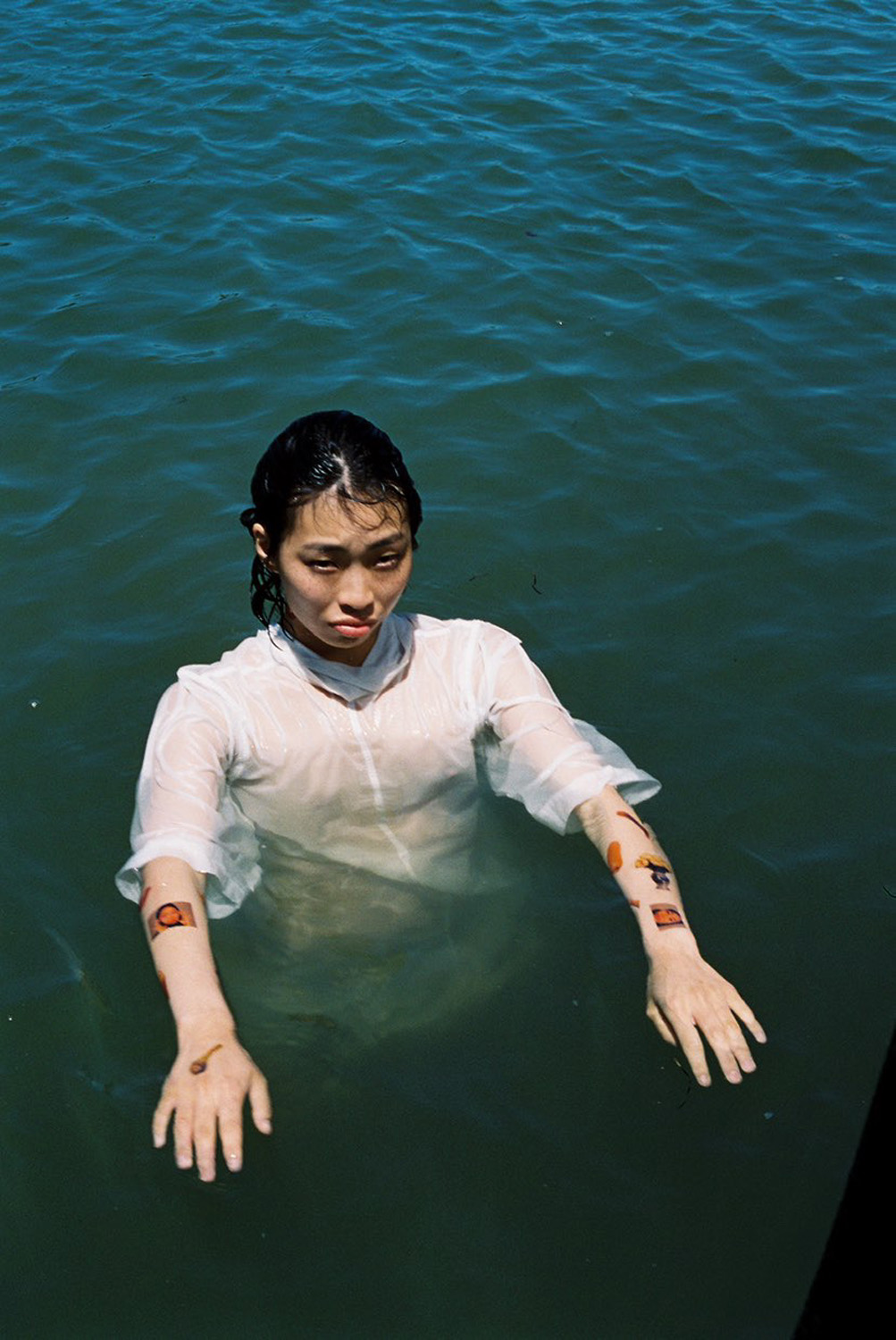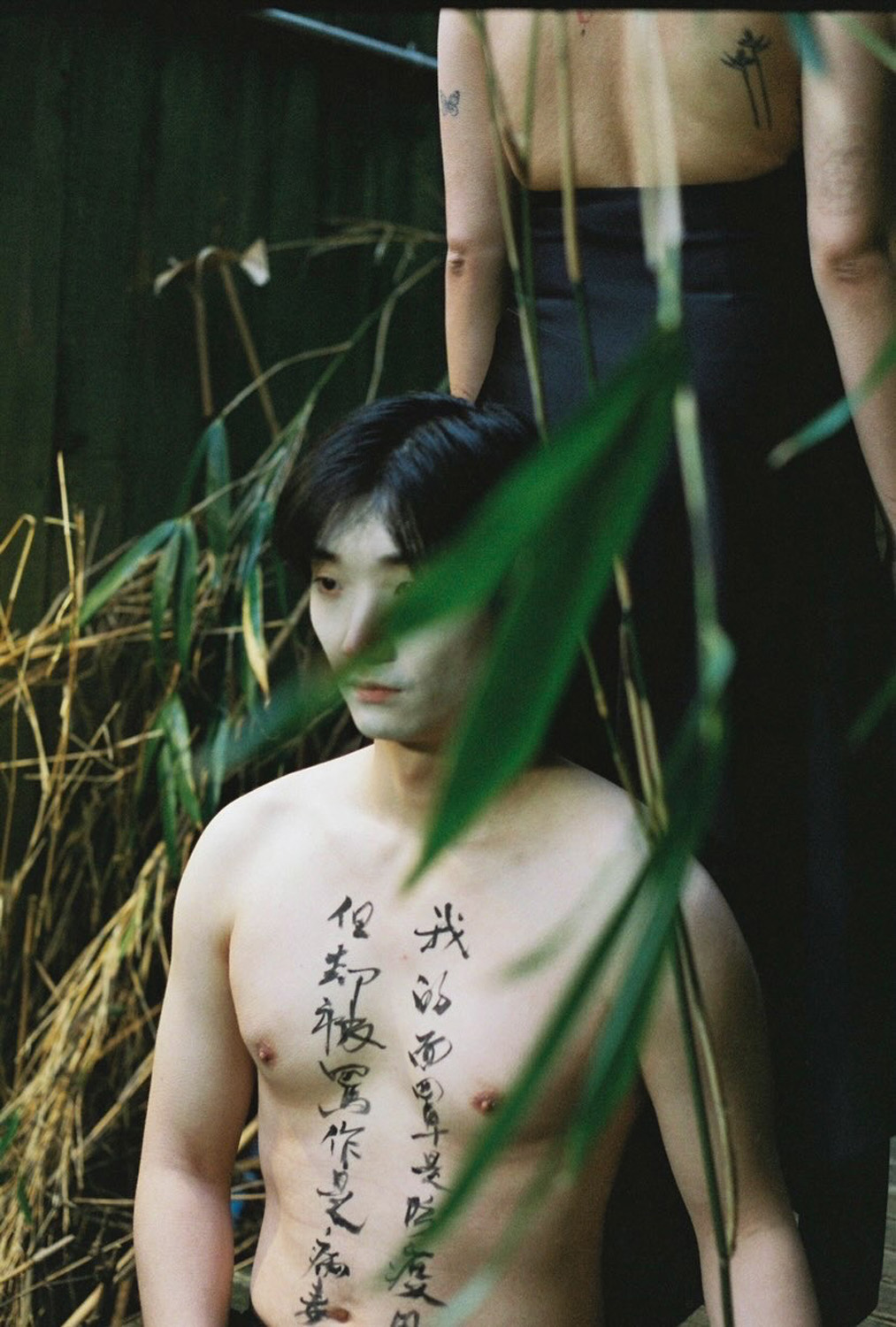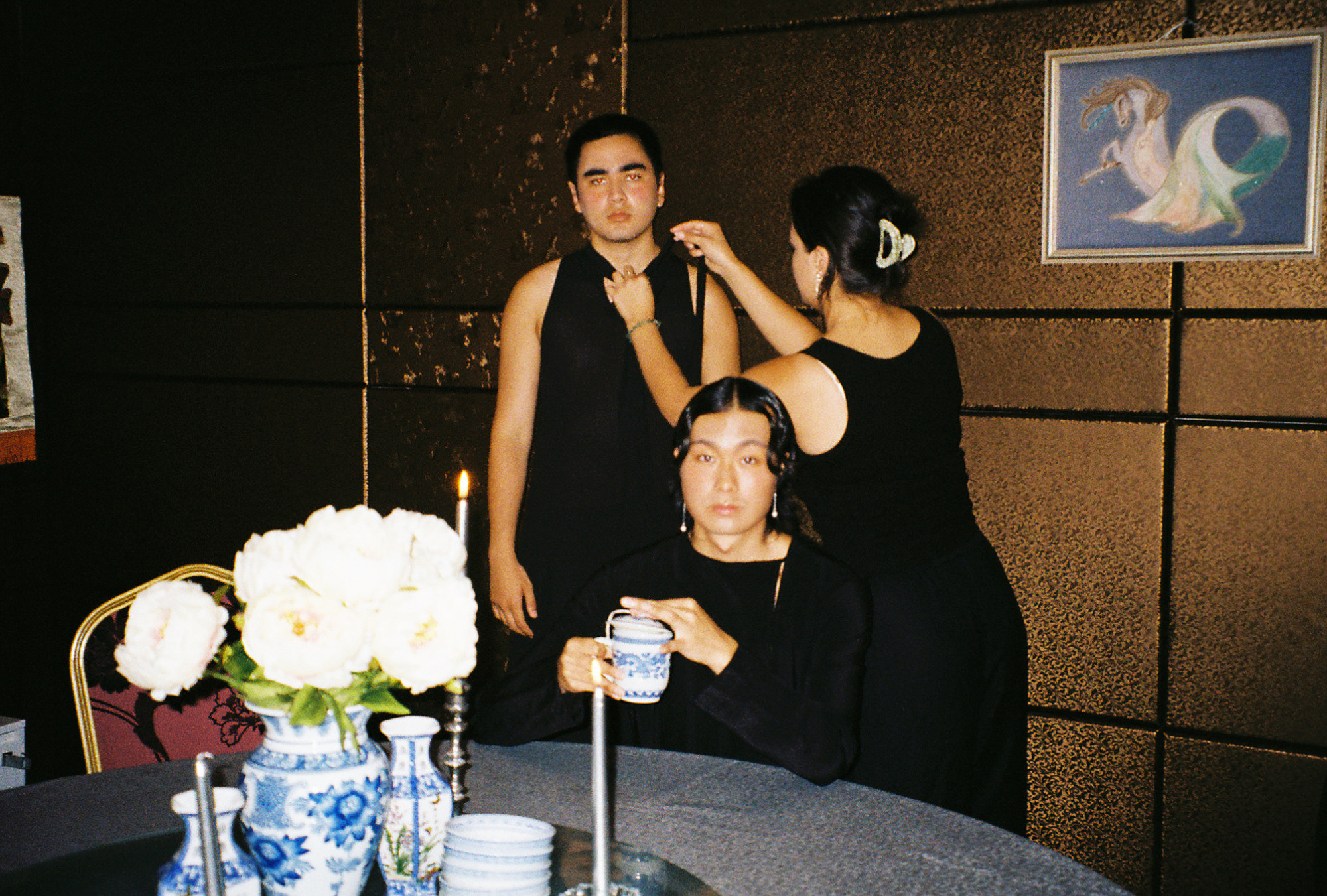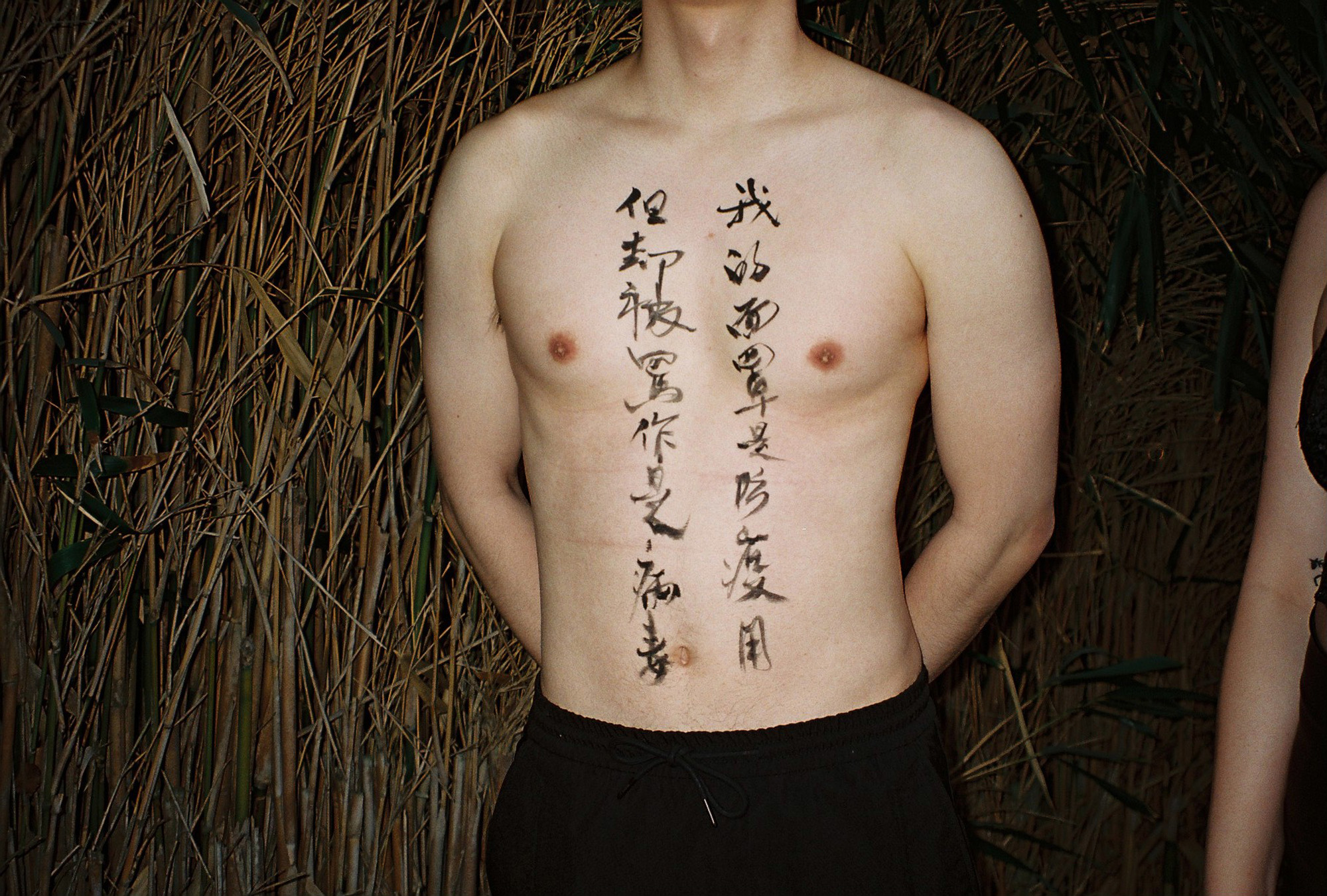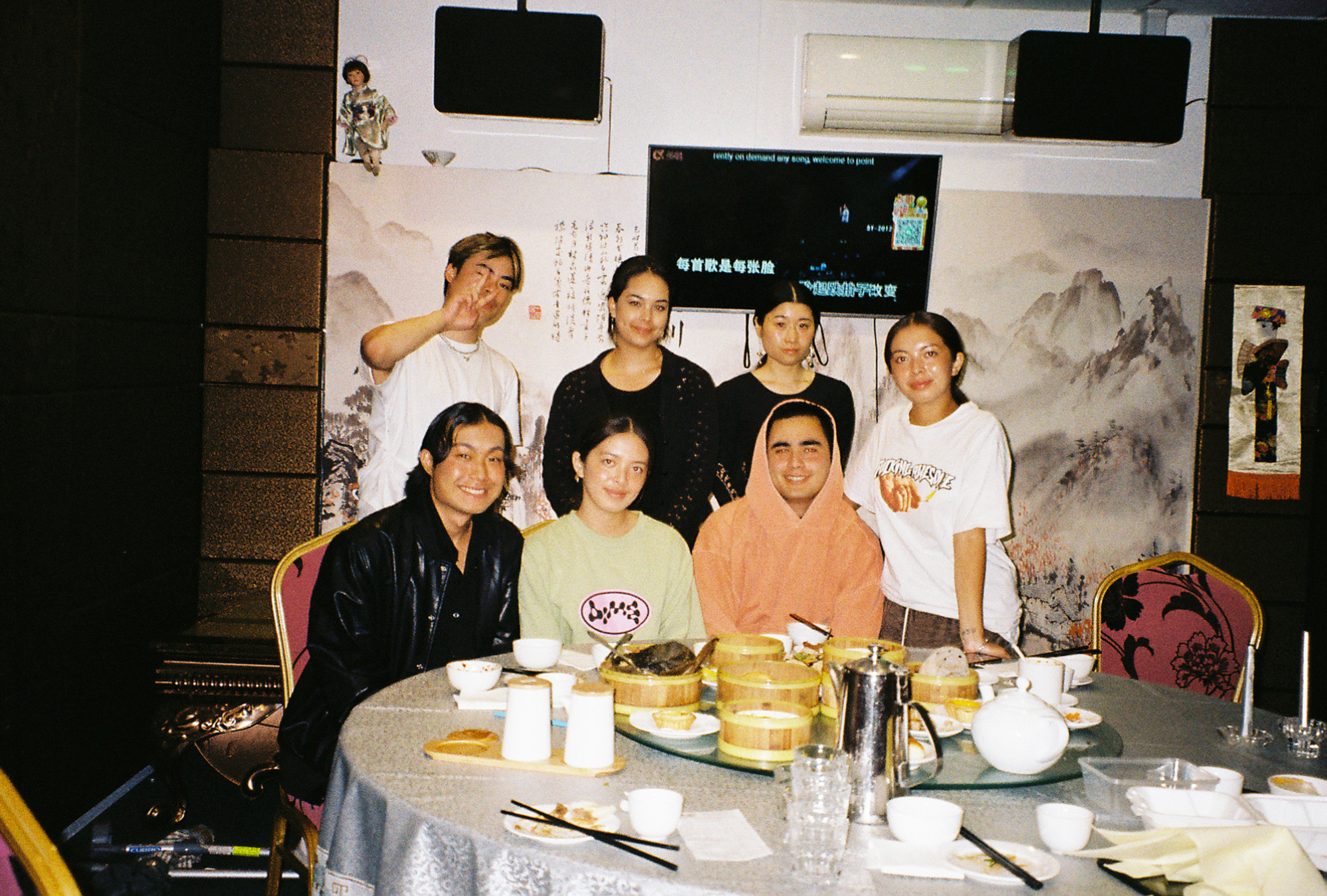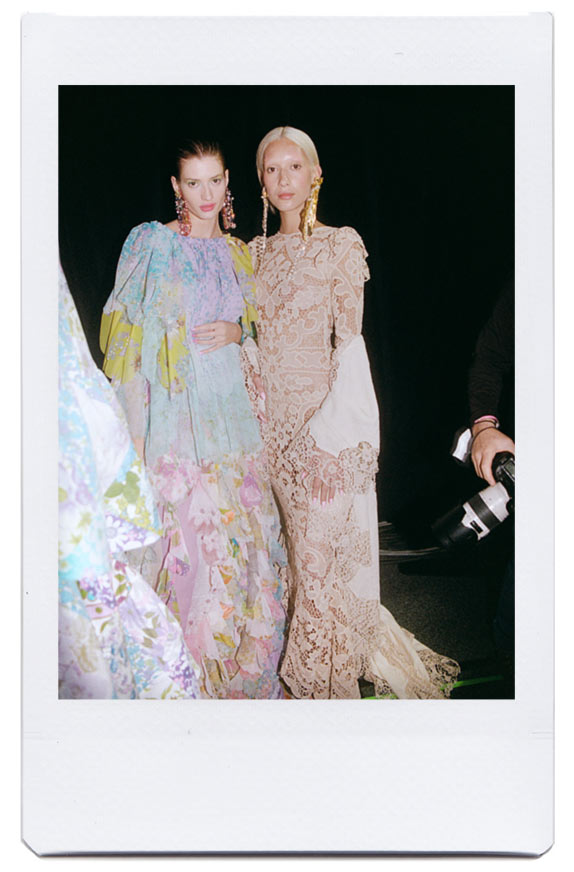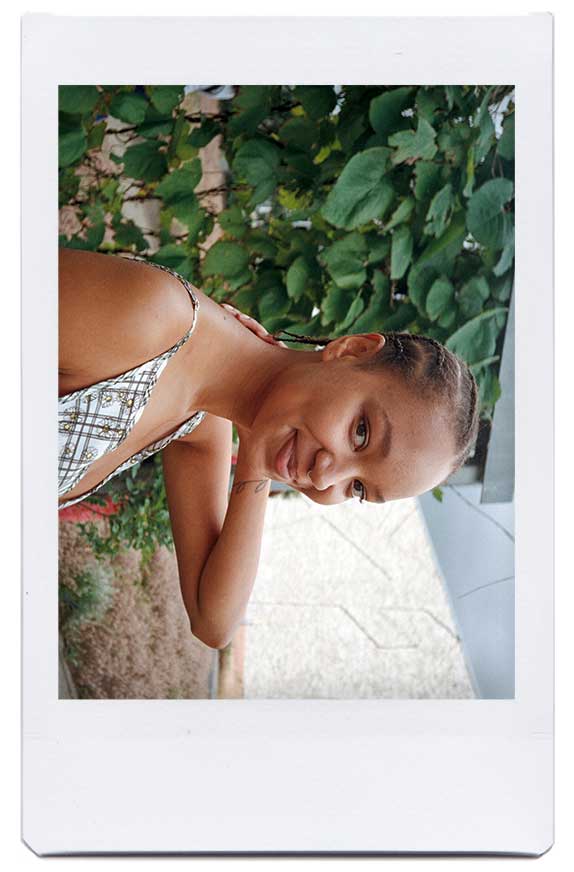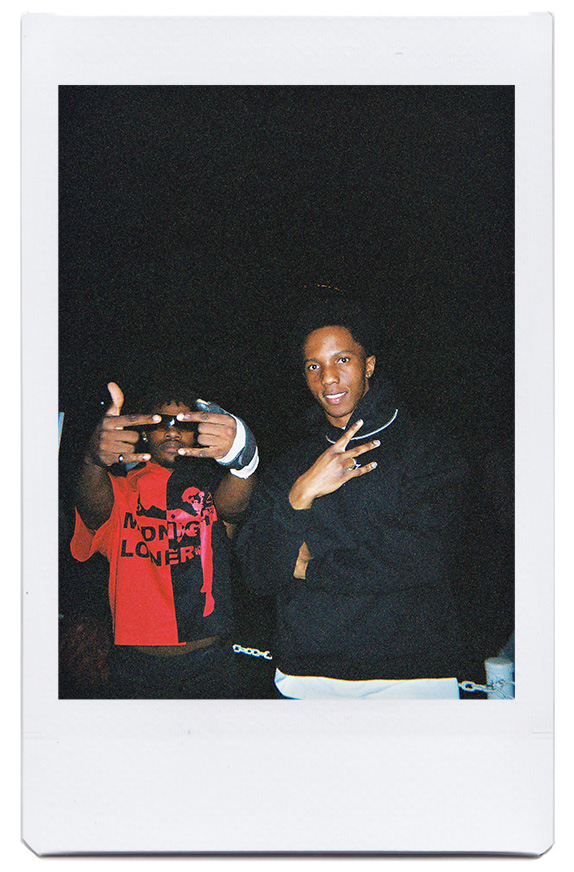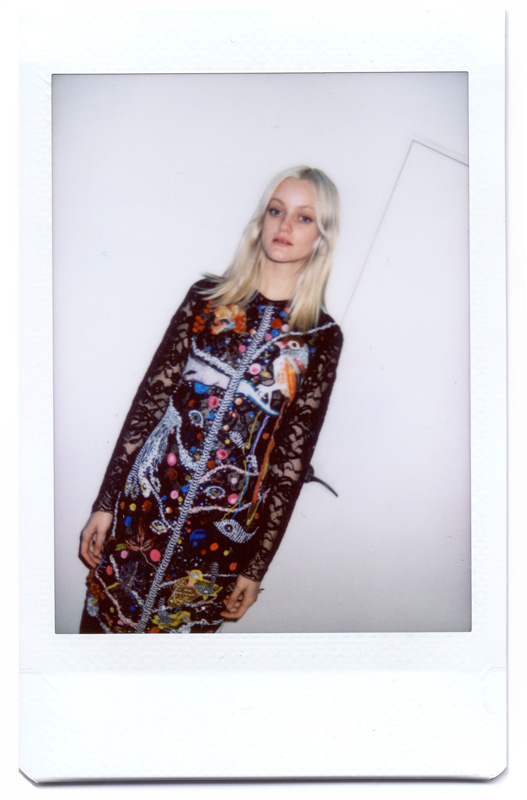Over a steaming cup of jasmine tea on a table overflowing with dim sums, Simon L Wong and Chyna Lily got talking about their upbringings. Before they knew it, the seed had been laid for what would become their new book 'Territory Unknown'.
In four years of living in Tāmaki Makaurau alone, my best friend and I have probably consumed over 100 bowls of chicken feet at various yum cha venues. Most of these dates would’ve likely fallen on a dusty Sunday or if one of us were feeling homesick. It’s these traditions that make up the bones to form a strong cultural identity. Yet, it’s also these traditions that we try to erase out of existence in our youth, for how ashamed we’re made to feel by Western culture.
'Territory Unknown' is a celebration of what it means to grow up as Chinese-Pākeha. The book owns Simon and Chyna’s selfhood, particularly as they work through the stages some of us know all too well—shame of any language that isn’t English, the yearning for a more “normal” name and most of all, the pressure to assimilate into whiteness. The concept of ‘Otherness’ is something that will feel as foreign to its creators as its victims are made to feel.
The pair’s collaborative book comes at a poignant time, particularly as people begin to forget about the rise of Asian hate during the height of the Covid-19 pandemic. It’s a privilege to forget. Through their brilliant and enigmatic photography, the duo hope to widen the lens through which our upbringings have framed around us. Their representation as Chinese-Pākeha is also undoubtedly crucial. Pākeha in the creative industry will rarely worry about being tokenised and used for their ethnicity. Nor will they ever feel the itch of discomfort from being the only person of colour in the room.
To reckon with your cultural identity is a process that can feel endless and tiring, but to then invite someone else into this sphere requires an inordinate amount of trust. Read below to immerse yourself in the admirable mahi of Chyna Lily and Simon L Wong and peruse the exclusive behind-the-scenes photos in the gallery above.
Can you summarise 'Territory Unknown' for us?
Simon: 'Territory Unknown' confronts, owns and celebrates me and Chyna’s Chinese-New Zealand ethnicity. It aims to encourage conversation about belonging and validate the ownership of our ethnicity, which we once tried to suppress. The photo book presents three stages of selfhood, starting with confrontation, ownership and unity. Confrontation contains general and intense stages of racism written in traditional Chinese calligraphy; ownership contains bodies covered in temporary tattoos, which we photographed of our personal taonga, and unity, which shows the togetherness food brings in our culture and tradition.
Chyna: 'Territory Unknown' is a photographic collaboration of our combined personal experiences of growing up in Aotearoa as Chinese New Zealanders. The photo series shows a trajectory of self-exploration of longing to reconnect with our heritage. We both photographed throughout our three shoots together in Te Whanganui a-tara, which can be seen with Simon photographing on a Canon 6D Mark ii and Chyna photographing with Film using a Pentax k1000.
How did the idea for the book come about? What was your relationship to each other beforehand?
C: I reached out to Simon via IG for the opportunity to assist him on any upcoming projects he had at the time, which was a few years ago now. We got to know each other over time, and one day we decided we both craved yum cha; while sipping jasmine tea and with a full table of dim sum, we discussed our upbringings and noticed more than a few similarities. Even from the early stages, we knew this could be the beginning of a long-term passion project which ultimately ended up being the book 'Territory Unknown'.
S: As I recall, Chyna reached out through Instagram to assist with my photo projects, we formed a mutual bond, and that was the foundation for our friendship. The idea about the book came about through personal conversation about our upbringing over yum cha, it was a lightbulb moment when we realised the importance of this colossal subject, and after careful consideration and research, it was work we had to make.
What do you hope readers understand about the Chinese-Kiwi experience?
C: Readers that think they can’t resonate with this work, I hope can understand that some of our family members moved here in hopes of a safer lifestyle for themselves and their children. Arriving in a new country without speaking the language and growing to understand social norms can be challenging and just the start of the hurdle. What you can do to help minorities is by asking about and understanding their stories, looking to employ Asians or Pasifika and supporting young, ambitious creatives. I hope other young Asian and/or Pasifika creatives see these works and are inspired by our drive and creativity. The goal is for more raw representation and voices to be heard from a wider range of minorities. We want to hear your stories, and we want you to reach out. It takes courage to share such a vulnerable part of yourself, but in the hopes of inspiring others, it's well worth it.
S: Yeah, I totally back everything Chyna mentioned above, we don’t want to gatekeep our experiences anymore, and we’re tired of the mistreatment. Though it’s hard to discuss things so personal in a public context, normalising discussion and representation can only make other experiences more comfortable in opening up. We want Asian/BIPOC to know their experiences are valid and their stories are heard. This is a safe space for that.
How would you describe the feeling of being ‘Othered’?
C: I would describe it as everyone around you having a team they support and belong to, but you’re sitting there isolated without a clear path ahead of you. With very little representation for you towards inspiration, one can often doubt themselves and their capabilities. Don’t sell yourself short; aim for the stars.
S: It’s hurtful, and worst is when the only difference between you and them is based on your features and ethnicity.
Growing up Asian in Aotearoa, there are definitely parts of ourselves which we feel ashamed of as kids. What part of what makes you different are you most grateful for now?
S: The fact I am bilingual! I think it’s such a privilege now as opposed to when I was young and ashamed of speaking to my mother on school grounds. Knowing another language opens a new world of understanding, and knowing that I can use that to communicate in places I travel to around the world feels superior.
C: When I was younger, I was often ridiculed because of my name; children and adults would intentionally say or write my name incorrectly. I remember being as young as 5 or 6 and convincing myself that it was okay and that when I turned 18, I could change it to a more generic name. I now think back to myself back then and feel sorry for how I thought about myself, my name and my ethnicities. I find comfort in how much I’ve grown, but I also wouldn’t have changed my experience for anything else because that’s the lesson I needed to learn.
How did your relationship with your cultural identity change across the 2 1/2 years of creating the book?
S: Without realising it and only reflecting on it during this question, I noticed the time spent making and writing has reflected how proud I am to be a Chinese-New Zealander. Though I can't change the hard times, they are learning curves and lived experiences that have gotten me this far. The thought that it may one day help someone else in opening up or sharing their burdens to lighten the load warms my soul and gives me the drive to keep creating.
C: I started being more critical of myself and my experience through writing about my work during my studies and personally through therapy. I had a bit of a light bulb moment during one of my undergrad classes, where we discussed the colonisation of Aotearoa and the implications of the dusky maiden trope in Western media. I couldn’t believe I wasn’t taught this earlier in my education, and I felt like I needed to dedicate time to research it for myself and for others. Cultural identity and femininity have been the basis of my practice for years now and will continue to intertwine in future opportunities.
What’s been the most rewarding part of your work?
C: When this project started, we were both working so hard on jump-starting our careers that I think we underestimated how big the project would eventually be. The most rewarding part of this project so far has been finally seeing the book as a tangible object. This project will live beyond us, and I think that’s the most magical part.
S: Following what Chyna said, it’s the fact that two and a half years ago, we would’ve never imagined how this work was going to come together. The reward is the physical book itself, a tangible piece of hope, and the love it will carry with it for whoever gets a hold of it. For the many years to come, I hope it continues to live with impact and elicits mindful conversations about belonging.
I loved how you discuss realising the importance of owning your Chinese/Pākehā ethnicity. What would you tell someone who’s just starting this journey?
C: The beginning of a cultural identity crisis starts as a big mountain of self-discovery. I would start by talking to your family, specifically your elders, about their stories, if and when they migrated and how they felt during this turmoil time. It can be emotional, to the point where you’re not sure if you’re doing it for yourself or for the generational trauma that sticks in your subconscious.
S: I also second what Chyna mentioned, learn from your elders, listen to your peers, practice your learnings and always keep that curiosity. Make sure to pass your lessons down to the next generation so the ownership of tradition lives on for generations to come.
Are there any social or cultural shifts that you hope will happen in the next ten years?
C: I hope to see more raw representation of mixed-race individuals based or have grown in Aotearoa, as well as honest voices in art and the media. This also includes natural-bodied and gender-fluid representation. The Western beauty standards heavily impact how younger generations treat themselves and others; we need to start sharing more natural bodies and voices.
S: I hope to see a significant reduction in prejudice, racism and harassment towards the Asian/BIPOC community, especially those growing up in western societies. For there to be acceptance of all races, body types, and beliefs. Though ten years seems like a long time from now, I want to be optimistic! I know these changes won’t happen overnight, but there’s hope for human nature to learn from the wrongdoings and be kinder for a harmonious future.
'Territory Unknown', by Simon L Wong and Chyna Lily, is available now.
Feature Writer: Yawynne Yem Photos: Chyna Lily & Simon L Wong

